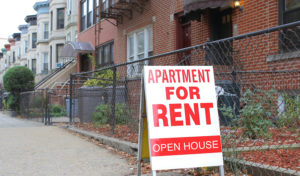
Local law will prevent landlords from screening tenants based on their criminal history.
Renters often bemoan the lack of affordable housing in cities like Seattle, Los Angeles, and New York. But for individuals with a criminal history, the search for housing can be even more difficult because of rental policies that screen out their applications.
In Seattle, the City Council has taken steps to make it easier for former offenders to seek housing through a new ordinance that prevents landlords from screening tenants based on their criminal history. The Fair Chance Housing Ordinance, which will take effect in early 2018, will generally prohibit landlords from rejecting applicants based on arrest records or conviction history—especially when the applicants committed the crimes as juveniles. The ordinance will also prohibit landlords from categorically excluding tenants with criminal histories, such as through advertisements that explicitly discourage applications from these types of tenants.
Yet, landlords may still rely on sex offender registries for adult violators when making rental decisions, as long as they base their considerations on reasons like resident safety or the protection of property. Additionally, landlords may continue to rely on non-criminal sources of information, such as consumer reports, which provide data on a consumer’s creditworthiness, credit capacity, and other metrics related to financial stability.
The ordinance will not apply to landlords who operate federally assisted housing and who may need to take adverse actions, such as denying tenancy, against tenants with specific violations under federal law.
According to the City Council, the ordinance addresses important barriers to housing in Seattle, where approximately 30 percent of all residents over the age of 18 have a criminal record.
In commenting on the ordinance’s passage, Councilmember Lisa Herbold noted that a connection also exists between homelessness in Seattle and the practice of discriminating against former offenders. According to Herbold, 55 percent of homeless people in Seattle who do not live in a shelter identified their criminal histories as a barrier to stable housing. Herbold further noted that the ordinance creates a “safer Seattle” because former offenders are “seven times less likely to reenter the criminal justice system” if they have access to housing.
Other advocates of the ordinance point to the link between housing policies and racial discrimination, contending that the law will reduce the impact that tenant restrictions have on minority communities. In explaining his support for the ordinance, former Seattle Mayor Ed Murray reportedly stated that, because the criminal justice system disproportionately punishes minorities, the ordinance will ensure that “everyone has the ability to contribute in our society, including getting a good job and raising a family.”
Critics of the ordinance, such as the Rental Housing Association of Washington, highlight the lack of supportive services in place for landlords who must adjust to the new law. Without services like a 24-hour help line for landlords or guaranteed funds for property damage, the Association contends that the mandate requires landlords to “take chances on under-qualified applicants.”
Although Councilmember Herbold has reportedly pledged to work with landlords over the next six months to implement fairer housing practices, the scope and exact details of the Council’s pledged support remain unclear.
By passing its new ordinance, Seattle has joined a small group of cities including Washington, D.C. and San Francisco that are attempting to increase housing opportunities for former offenders. The city is also affirming federal guidelines that the U.S. Department of Housing and Urban Development (HUD) issued during the Obama Administration.
According to the guidance, a landlord’s use of a tenant’s criminal history may, under certain circumstances, violate the Fair Housing Act—a landmark federal law that prevents housing discrimination. A landlord’s decision to deny housing based on criminal history is likely to violate the Act when it has a disproportionate impact on applicants of a particular background and lacks sufficient justification. For instance, a housing provider that excludes tenants with certain types of convictions must demonstrate that its policy “accurately distinguishes between criminal conduct that indicates a demonstrable risk” to concerns like resident safety, property, or both, and conduct that does not pose a risk.
As support for the guidance, HUD has observed that authorities tend to arrest and incarcerate minority individuals at high rates—a factor that makes it more difficult for them to secure housing after they re-enter society. Furthermore, because arrest records often provide incomplete information, these individuals may face obstacles when applying for housing even if their arrests ultimately led to acquittals.
As a result, HUD has noted that although the Act does not forbid landlords from considering a tenant’s criminal history, “arbitrary and overbroad criminal history-related bans are likely to lack a legally sufficient justification” and may constitute a violation of federal law.
For many Seattle residents, the new ordinance, which affirms the HUD guidance, may be an important step forward in creating new opportunities for housing.



